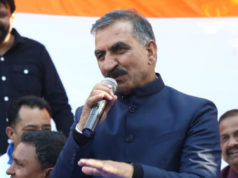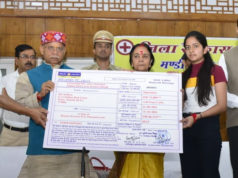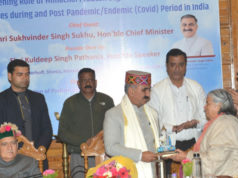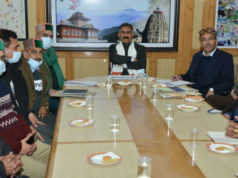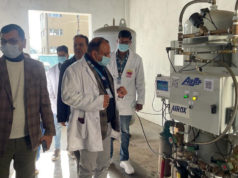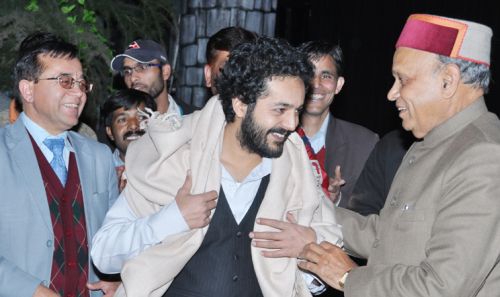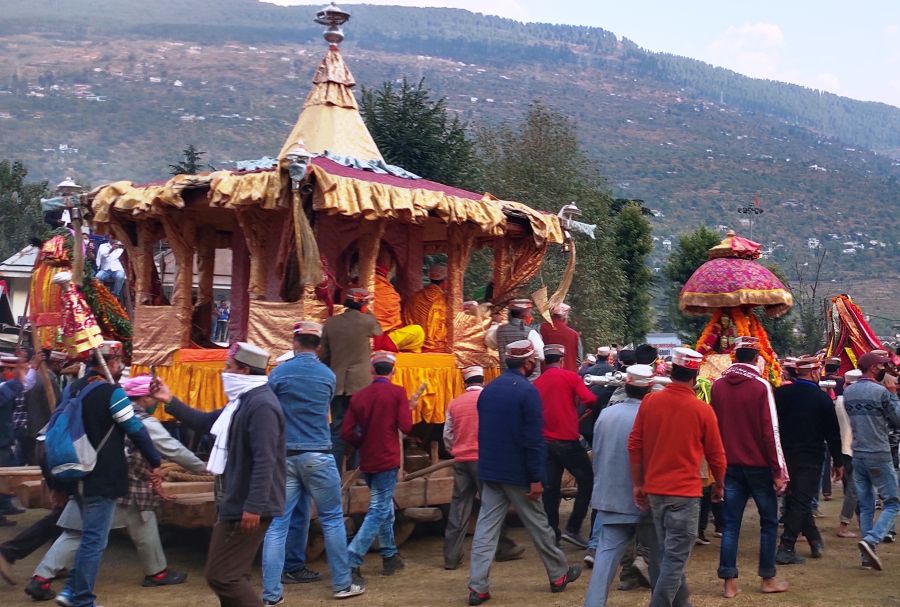
Kullu: It’s not only the people who are facing mobility restrictions in Himachal, even the local deities who are usually part of the internationally renowned Dussehra festival celebrations are bearing the brunt of COVID pandemic.
The week-long festive celebrations in Kullu commenced on Sunday at Dhalpur ground, with the ‘Rath Yatra’ of chief deity Lord Raghunath.
Witnessing a low-key affair, only seven prominent deities including Bijili Mahadev, Mata Hadimba (Manali) were part of the celebrations. Over 250 deities have been made to skip the event.
Contrary to the previous years, invitations were not sent to them and also no Nazarana was offered to them this time.
The decision was taken unanimously in consultation with the entire Dev Samaj by the organizers of Dussehra Festival.
The festival will conclude on 31 October with ‘Lanka Dahan’.
Last year as many as 300 deities from the Kullu Valley were invited out of which 280 had participated in the festival.
Kullu Deputy Commissioner Richa Verma maintained that this time in order to continue with the traditions of the festival celebration is symbolic, with less fanfare due to the COVID crisis.
“A limited number of persons are being allowed to visit the Rath Yatra and the participants taking part in the Rath Yarta had to undergo compulsory COVID test. Only those testing negative are allowed. Live streaming of the festive celebrations through Youtube and Face Book has been arranged so that people can watch it sitting in the comfort of their homes.”
For prevention of the spread of COVID section 144 of CrPC has been imposed in Kullu to discourage gatherings, she added.
Origin of Kullu Dussehra festival
The festival dates back to 1637, when the local King Jagat Singh ruled the Kullu estate. Naggar was then the capital of Kullu.
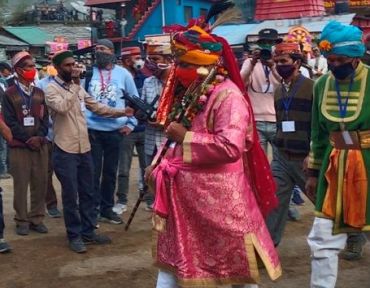
He installed the idol of Lord Raghunath, brought from Ayodhaya, the birth place of Lord Rama on his throne as a mark of penance after his family was afflicted with a curse. He declared Lord Raghunath as the ruling deity of the Kullu valley.
According to the legend, a poor Brahmin Durga Dutt lived with his family in a small village Tippari in the Manikaran Valley.
The King was misguided, that Durga Dutt had ‘mann’ (one and a half kg) of beautiful, pure pearls in his house. Struck by ego, the King thought that the rightful place for such huge quantity of beautiful pearls was only his royal palace.
He warned the Durga Dutt to deposit the pearls in his palace or else he would face punishment.
Whereas, the fact was that the only pearls Durga Dutt had were pearls of knowledge. He tried to convince the king, but all his efforts were in vain.
Eventually, his entire family to escape the king’s wrath resorted to self-immolation. They cursed the king and the entire royal family is said to have got afflicted with leprosy.
It was on the advice of a saint, Kishan Das, king brought the idols of Lord Ragunath, goddess Sita and Hanuman from Ayodhya and offered his entire empire to the Lord Raghunath, to get rid of the curse.
The idols of Lord Roghunath, Goddess Sita and Hanuman were brought to Kullu in 1651 by the saint’s pupil of Damodar Das.
These idols are said to the very idols made by Lord Rama, at the time of ‘Adhvamegh Yagya’ during Tretayug (ancient days when Lord Rama used to rule Ayodhaya).
Initially, these idols were kept at Manikaran temple, but later brought to Kullu in 1660 with proper religious rituals. Dedicating his entire empire to Lord Raghunath, the king declared himself a care taker of Lord Ragunath.
The King eventually got rid of leprosy and in 1660 he invited the deities from the entire Kullu valley for celebrations, which is still continues till date.
The local deities started revering Lord Raghunath as the esteemed deity of Kullu.
The state government declared it a state level festival in 1966 and an international festival in 2017.
In February, 2016, the Kullu administration got Guinness World Record certificate for the largest nati, dance by 9,892 dancers mostly women, held on 26 October, 2015, that took place during the Dussehra festival.


